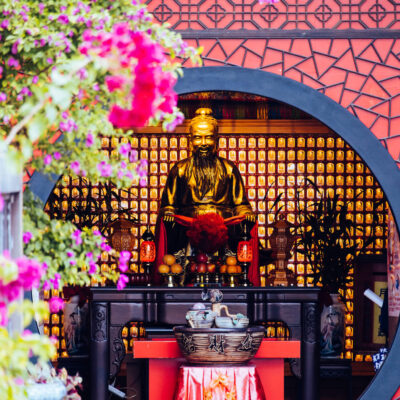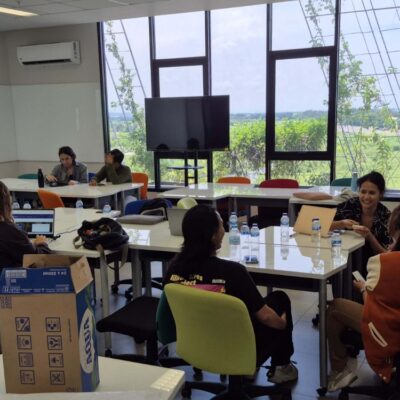Australian federal elections are being increasingly impacted by our relationship with China, the rising superpower. But not in the way depicted by the current federal government.
Australia’s Minister for Defence, Peter Dutton, recently cited confidential security documents to support his claim that the Chinese Communist Party was backing Labor leader Anthony Albanese as their preferred candidate and had tried to interfere in the forthcoming Australian election. Dutton was apparently referring to claims that China had tried to influence Labor’s candidate selection. The Prime Minister Scott Morrison claimed that Labor wanted to ‘appease’ China and while his government ‘stood up’ to China he claimed ‘Labor, when it comes to these issues and keeping Australians safe, they’re just soft.’ He even called Labor’s deputy Leader Richard Marles ‘a Manchurian candidate’.
Albanese has angrily denied the government’s accusations while arguing that Labor and the Coalition government hold a ‘common position on Hong Kong, Taiwan, Uyghurs, the issue of the South China Sea, issues of foreign interference, cyber security issues’. Furthermore, Labor’s Chris Bowen has argued that, if Dutton ‘has used ASIO [Australian Security Intelligence Organisation] briefings and sought to misrepresent them for political purposes, then he is the threat to national security.’ ASIO’s Director-General of Security, Mike Burgess, has also confirmed that no selected Labor party candidates are under investigation, while strongly suggesting that his organisation should not be politicised.
However, mobilising fear of China is not new. Labor’s election bids in the 1950s and early 1960s were impacted by Coalition campaign advertisements showing a Chinese ‘redopus’ stretching octopus-like tentacles down to Australia. Former Prime Minister Gough Whitlam complained about the long history of the Coalition trying to use fear of China against Labor prior to the 1972 election. Conservative politicians mobilising related fears of communism and socialism against Labor has an even longer history. Labor Prime Minister Ben Chifley complained that his 1940s government had fallen victim to ‘a policy of hysteria’ in which his party was denounced as communist and socialist and many voters were ‘frightened of the terrible things which were to happen’. Current Treasurer Josh Frydenberg’s recent attempts to associate Albanese with Trotskyites and Bolsheviks plays into this longstanding ‘reds under the beds’ rhetoric.
As I have argued elsewhere, there were already signs in the 2019 election campaign that the Coalition was mobilising fear of China against Labor and it was likely that this trend would only increase. Dutton’s recent criticisms of former Labor Minister Bob Carr for ‘being very close to Beijing’ is reminiscent of an incident during the 2019 election campaign. During a policy debate with Labor’s Foreign Affairs spokesperson Penny Wong, then Trade Minister Simon Birmingham criticised Labor for not having adequately distanced itself from Labor party figures he depicted as being too soft on China including ‘Bob Carr and others who sit within the (Labor) ranks’. Wong controversially refused to shake Birmingham’s hand when the debate ended, chastising him for abandoning bipartisanship and ‘playing domestic partisan politics with the relationship with China’.
Wong and previous Coalition Foreign Minister Julie Bishop had together worked hard at retaining a bipartisan position. However, it should be noted that Bishop herself had not always been so accommodating: in 2009, as Deputy leader of the Liberal Party, Bishop had said of then Labor Prime Minister Kevin Rudd, that ‘I wouldn’t be the first to call him the Manchurian candidate’. Both the then Leader of the Opposition Malcolm Turnbull and Shadow Treasurer Joe Hockey had also criticised the Rudd government’s close relationship with China. Anthony Albanese accused Hockey of ‘ringing the old bell about the red hordes coming down’.
Such accusations appear to have had little effect in 2009 when China was seen largely as an important trading partner and far less threatening than now under current President Xi Jinping. There is a long history in Australian politics of vacillating between emphasising fear or hope in regard to Australia’s relationship with Asian powers. Even in the 2019 election, the Coalition’s attacks on Labor for being too soft on China were relatively muted. Rather, the Coalition tended to benefit indirectly from attempts to mobilise fear of China, mainly by gaining preferences from Clive Palmer’s United Australia Party and Pauline Hanson’s One Nation, both of which argued that mainstream Australian politicians weren’t adequately standing up to the ‘China threat’ and were selling out Australian interests.
Now the national security issues are far more evident, with the AUKUS ‘alliance’ signalling a stronger integration of Australia into the Anglosphere, and particularly alignment with U.S. strategies for containing an increasingly authoritarian, assertive and aggressive China. Meanwhile, Dutton is positioning himself as a possible future Liberal leader by muscling up to China in moves that herald an election campaign framed in the context of war. Broader strategic tensions are rising. Dutton has argued that Russia’s invasion of Ukraine would also destabilise the Indo-Pacific and could embolden China to invade Taiwan. Wong has called again for bipartisanship on security issues, including steps against Russia. She has emphasised, in the context of Taiwan, that no country should use Russia’s horrific attack on Ukraine and the ‘international system’ underpinning state sovereignty as ‘any justification for the unilateral changing of a status quo position.’
However, national security issues are only the most obvious way in which Australia’s relationship with China is influencing Australia’s election campaigns. There are also major economic issues arising from the increasingly strained relationship. The government has accused Labor of being prepared to sacrifice some industries in trade disputes with China, once again an accusation that Albanese strongly denies.
There are also more indirect economic links. For example, Clive Palmer recently announced that he has a budget of $100 million for advertising in this year’s election. This time around, Palmer is running on a ‘freedom’ anti-government pandemic lockdown and restriction agenda and will be targeting both major parties in an attempt to seize the balance of power. We have yet to see how much anti-China rhetoric will feature in his campaign. However, perversely, Palmer has boasted that $100 million is ‘only a couple of months work for me’, given that he receives over $600 million annually in mining royalties from the Chinese company Citic (albeit after a long running legal dispute). It looks as though China will indeed be funding an intervention in the Australian election campaign, although certainly not in a way the Chinese government intended.
Australia’s economic links with China have also impacted on federal elections in other ways. One of the reasons Labor went to the 2019 election proposing higher taxes was because of the major tax cuts and concessions of the Coalition government led by Prime Minister John Howard that were funded by the then Mining Boom (and minerals trade with China in particular). For example, then Labor Leader Bill Shorten explicitly argued that Howard had removed taxpayers paying franking dividend taxes on their shares because of the amount of money ‘coming in from mining’. In Labor’s view many of those tax cuts and concessions had reduced government revenue to unsustainable levels. Labor’s backing away from its previous taxation agenda means that it will still have to deal with such funding shortfalls if elected. Similarly, Labor’s current commitments to increase Australian-made goods and address stagnating Australian wages also need to be seen in the broader context of the negative impacts of increased economic competition from the rising powers of Asia, especially China.
Whoever wins government will have to deal with such geoeconomic and geopolitical challenges. So even if security issues do not come to a head, Australia’s relationship with China will still be an issue. There will be no easy solutions for Labor to these intractable problems as there were in Whitlam’s day. Then the Coalition government had denounced Opposition Leader Whitlam’s visit to China, only to be blindsided by news that the U.S. was arranging for President Nixon to do the same. In short, Coalition’s attempts to use fear of China had backfired spectacularly.
Of course, the Coalition may not have it all its own way. Some Coalition strategists are very concerned that the tough anti-China rhetoric could have a detrimental impact on crucial electorates with a high percentage of Australian-Chinese voters, particularly those with a mainland Chinese background. Australians of broader Asian heritage are also concerned by a related rise in anti-Asian racism. Furthermore, polling by Essential suggests that many voters want Australia’s complex relationship with China to be managed in a far more nuanced and careful way than the Coalition’s gung-ho rhetoric suggests.
Nonetheless, a changing geopolitics and geoeconomics means that China will continue to influence the nature of Australia’s elections, even if not through direct, or claimed, attempts to do so by the Chinese government. A greater danger may be that the party-political weaponisation of Australia’s relationship with China, while not new, risks leading to very poor policy and strategic outcomes.
Image: Minister for Defence Peter Dutton in Washington, D.C., Sept. 15, 2021. Credit: US Secretary of Defense/Flickr. (This image has been cropped.)




